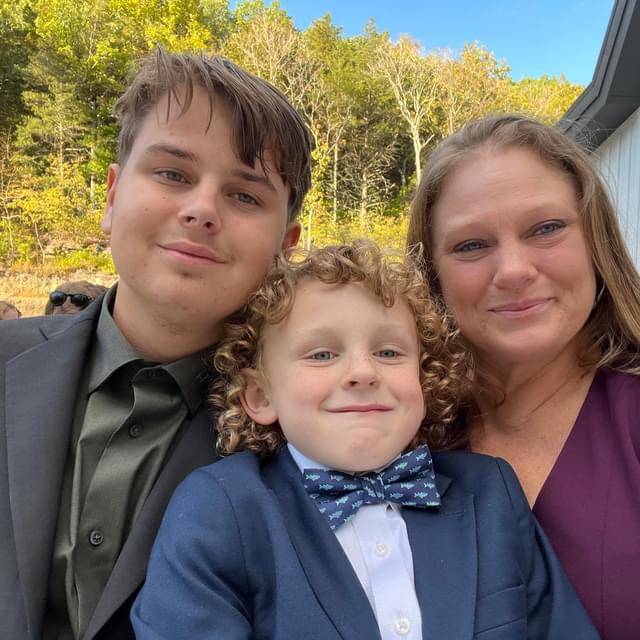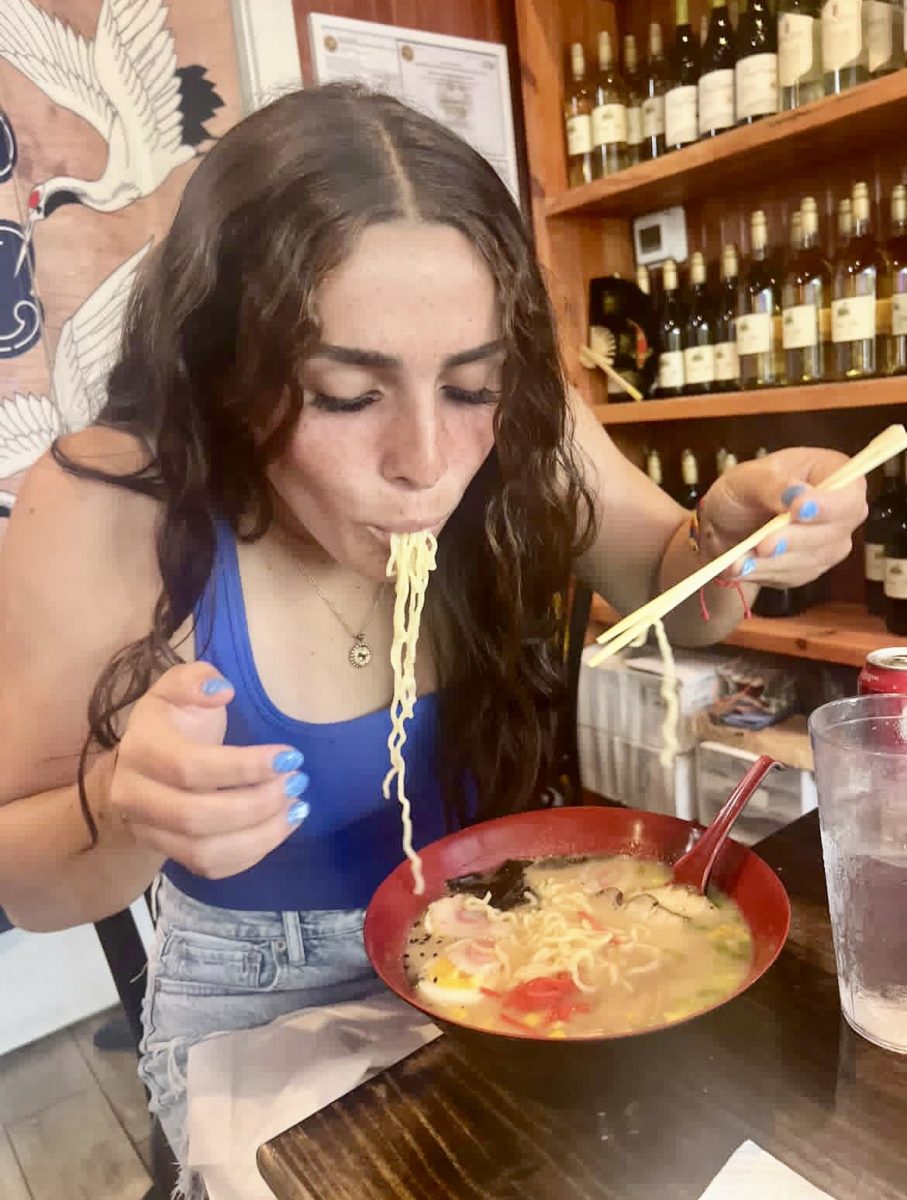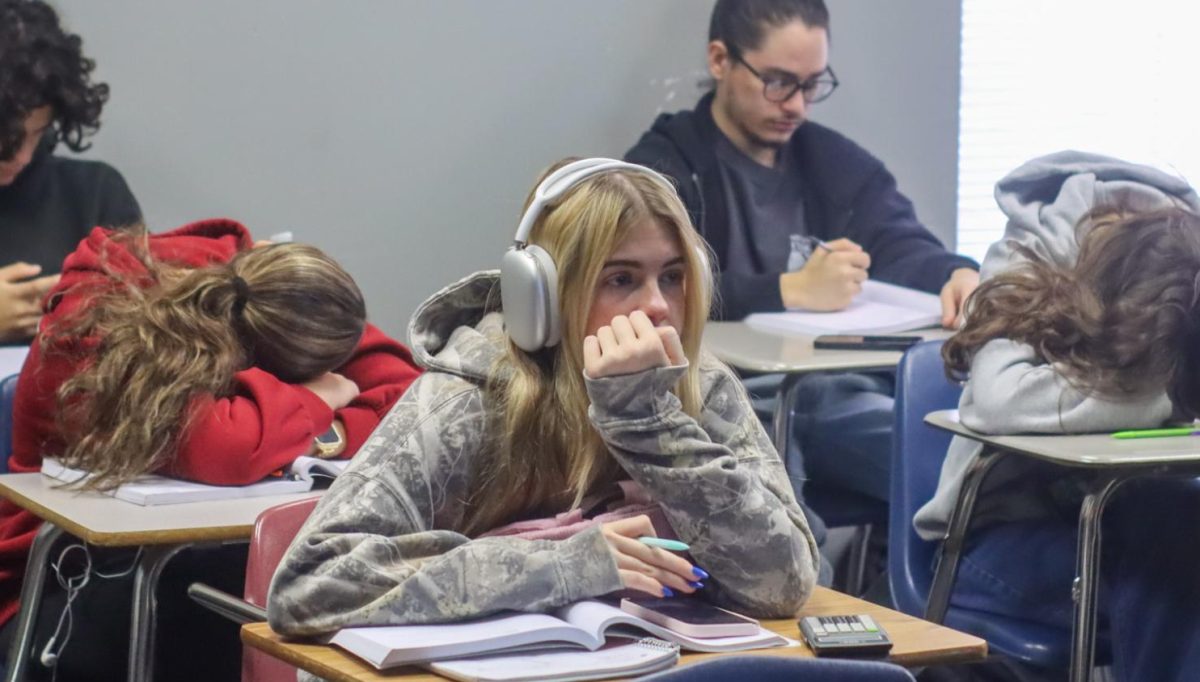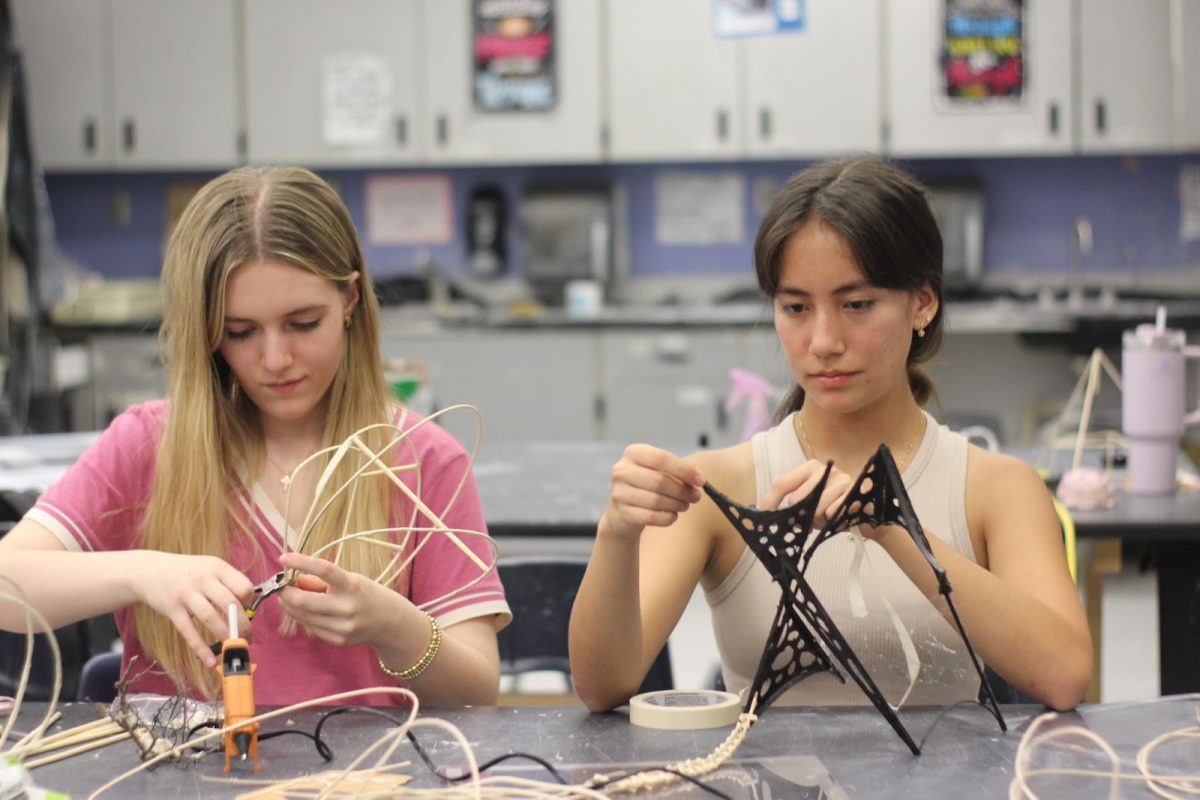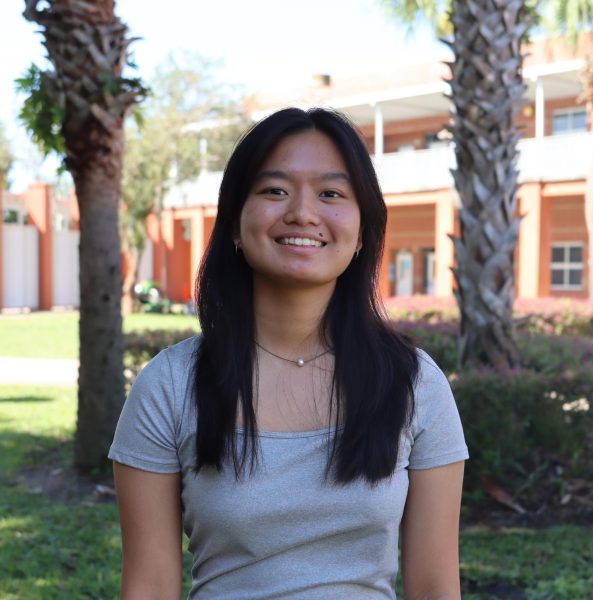Levothyroxine. Hydrocortisone. Atomoxetine. Words you would only encounter in an organic chemistry textbook are a part of junior Brycen Dillinger’s everyday life.
“I had a port put in, I’ve had screws in my head—actually knocked a screw out and had to get it surgically removed—I’ve had three major brain surgeries because I didn’t have blood flow to my brain,” Dillinger said. “[But] you just kind of roll with the punches.”
At age 4, Dillinger was diagnosed with a right thalamic astrocytoma, which affects the part of the brain responsible for movement and identifying sensation. Thalamic astrocytomas account for 1-5% of brain tumors, and incurable tumors, like Dillinger’s, are especially rare.
“It’s in the really risky part of my brain,” Dillinger said. “[My doctors] said it’d be like mixing red and green sand and shaking it, then trying to remove all of the red sand without touching any of the green.”
Considering Dillinger’s young age at the time of his diagnosis, he does not remember most of the details. However, Dillinger’s mom, Tracy, remembers everything.
“It was June 17, 2010,” Tracy said. “When the neurosurgeon said [the diagnosis], I just turned my back to Brycen and faced the wall and broke out into tears. [It was] like falling into a black hole.”
Recently laid off and in the middle of finishing her bachelor’s degree, Tracy struggled to make ends meet.
“Everything kind of stopped. Your focus is going to the hospital every day and just doing what you have to do,” Tracy said.
Tracy channeled her heartbreak into helping others, hosting fundraisers at local restaurants like Mellow Mushroom and organizing CureSearch Walks to raise money and cancer awareness. Dillinger saw the fruits of his mom’s labor add up at school, where in every classroom, milk jugs, empty at the beginning of the week, gradually filled with spare coins and bills that people donated.
“[Raising awareness is important because] not everybody knows what we [cancer patients] go through. Families are destroyed everyday by getting cancer diagnoses…it tears people apart,” Dillinger said. “Community support helped me get through a lot.”
At the beginning of his treatment, Dillinger visited the hospital every day for proton radiation and chemotherapy. As the growth of his tumor slowed, so did the hospital visits. After more than 30 different chemotherapy treatments, Dillinger’s tumor has stopped growing and only requires an annual routine scan.
Despite saving his life, Dillinger’s treatments also have side effects that extend beyond the hospital. As a result of radiation therapy, Dillinger developed moyamoya, a rare condition in which narrowed arteries restrict blood flow to the brain. This blockage can cause ministrokes without warning.
“It was pretty scary the first time,” Dillinger said. “I was just standing, and then I fell over, and we didn’t know why.”
Since his first stroke at age eight, Dillinger has undergone two carotid artery bypass surgeries to reconstruct his blood vessels and increase blood flow to his brain. However, the risk of a stroke remains. Last September, Dillinger experienced a stroke, rendering one-half of his body motionless. No fool-proof treatment for the disease exists, so Dillinger can only take precautionary measures like making sure he is properly hydrated and not sweating too much.
In addition, cognitive issues have arisen in the years following Dillinger’s treatment. His tumor is located near the center of his brain, an especially sensitive area, and radiation from his past treatment has killed healthy cells along with cancerous ones. Although the effects are mild, they present challenges to living a normal life, most apparent in complex tasks like driving.
“[The doctors] diagnosed it as frontal lobe disorder, and they compared it to Alzheimer’s…my heart just broke,” Tracy said. “His memory, the ability to focus, his reaction times, those are all things that concern us as parents.”
Even after thirteen years as a cancer mom, Tracy continues to struggle with the emotional effects of witnessing her son fight cancer and its side effects. Post-traumatic stress disorder, which plagues every one in five cancer families, manifests itself in intense feelings of anxiety and flashbacks.
“There’s a lot of trauma from that very first moment of hearing that your child has cancer,” Tracy said. “Anything can trigger it, like going to hospitals. [The triggers] can come at the most inopportune times, and you never know what they’re going to be or when they’re going to happen.”
Although the medical field has been essential to Dillinger’s recovery, Tracy describes it as a “love-hate relationship.” Coming from a military family, Dillinger moved away from the original Jacksonville hospital where he was treated. This has led to complications due to the slow transfer of medical records and paperwork.
At one point, Dillinger ran out of steroids used to treat his adrenal insufficiency, a hormone deficiency that can be fatal if left untreated. When Tracy called for refills, the hospital asked for a referral and put Dillinger on a waiting list.
“I’ve found navigating the medical field frustrating,” Tracy said. “But then again, I think about Brycen’s neurosurgeon and the vascular surgeon. Brycen wouldn’t be here today without them. They saved my son’s life.”
Throughout his cancer journey, Dillinger has drawn on the strength of those around him.
“My mom was there for me through everything, and [seeing] other people gathered around me was really uplifting,” Dillinger said. “I don’t really think about [the tumor] a lot. I hang out [with my friends], I play video games…I [can] do everything that a normal kid can.”


